Research
The role of research at UCLA Architecture and Urban Design is to produce new forms of knowledge.
UCLA is a Tier 1 research university where new knowledge is a constant pursuit. This spirit—research that powers progress—both motivates and informs our work at AUD.
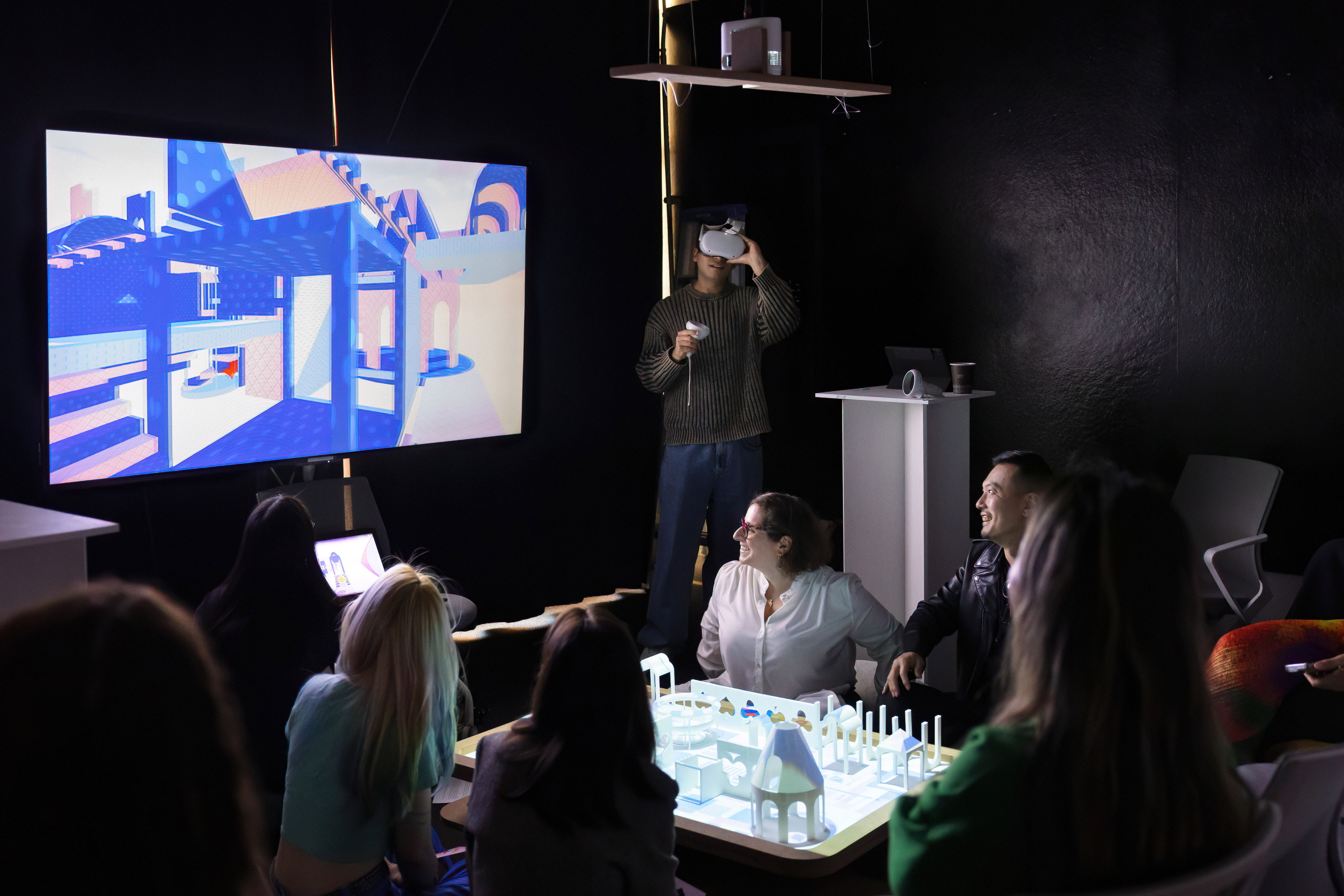
AUD faculty bring their ongoing research agenda to the context of teaching through advanced-level work. Our collective research interests are diverse and international in their focus, but we often engage city departments and officials around issues impacting the growth of Los Angeles as a case study for a rapidly evolving urban metropolis. While the format of this work can vary, we train future architects and scholars to seek, shape and produce new forms of knowledge in their respective fields.
Research at AUD takes three essential shapes: current endeavors and programming that connect AUD with external partners and colleagues; research conducted via our curriculum and especially our year-long Research Studios; and research led via our Research Centers.
Research Studios
At a research university like UCLA, new knowledge is a constant pursuit.
AUD's curriculum fosters both research itself, as well as the tools and perspectives that enable the lifelong pursuit of insight and discovery.
Each of our academic programs brings both the spirit and the act of research into their respective curricula. MArch students each take on a year-long Research Studio in their third year of study; therein, they focus their design skills and interests on a substantial, capstone-style project or topic of inquiry. The MSAUD program engages research to question, challenge, and expand the current conventions of architectural practice. For our MA and PhD programs, research is simultaneously purpose, method, and outcome, as students pursue scholarship that aims to provoke and operate within architecture’s public, professional, and scholarly constituencies.
Our course descriptions (current and historical) offer portal into the different questions, topics, and interests that animate our research and propel our pursuit of new knowledge and ways of designing.
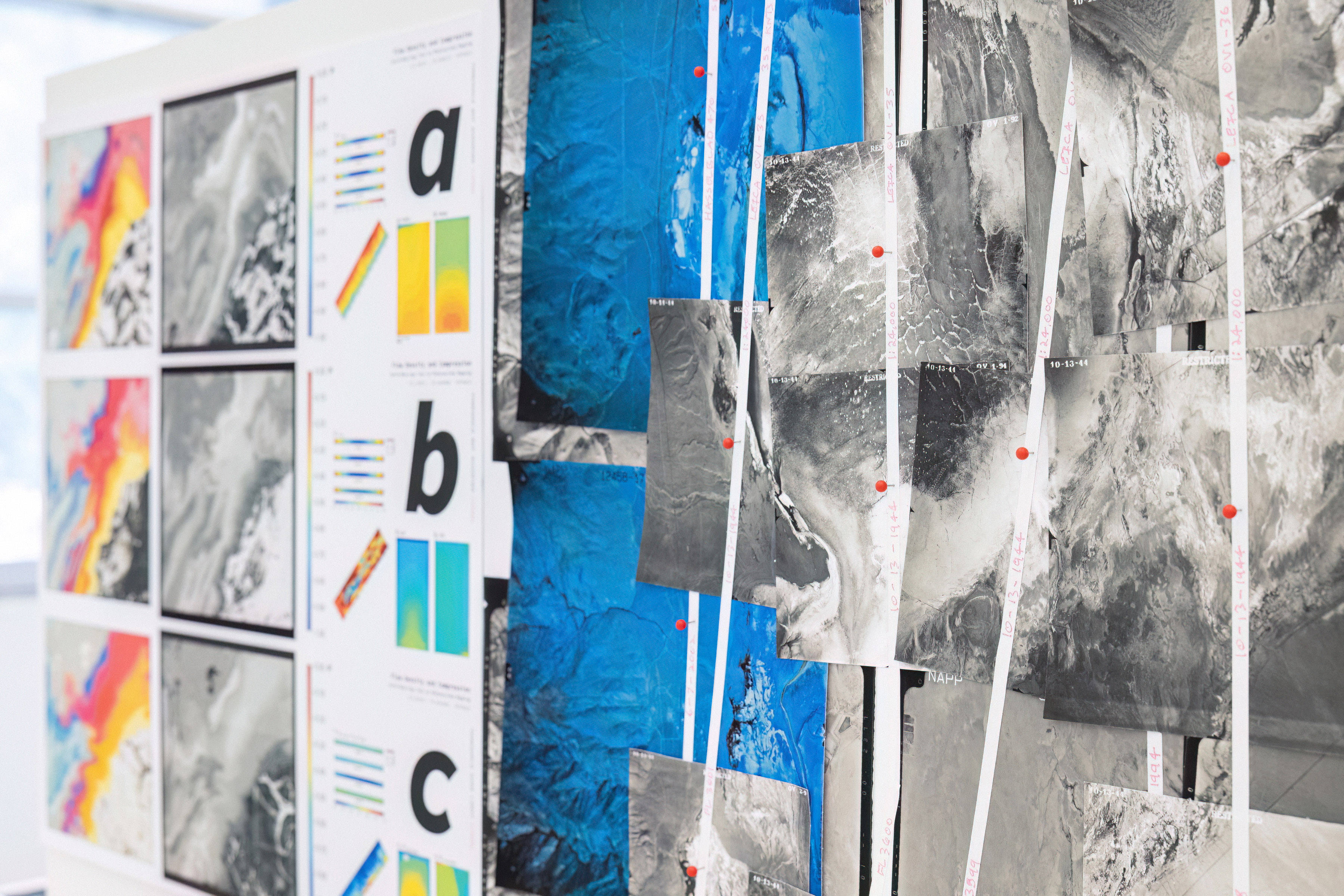
Over the 2024-2025 academic year, AUD's Research Studios included:
"Place of Shared Experience: Multicultural Transformation of the Tea Ceremony" with Hitoshi Abe
"Saline Dreams: Learning from Owens Lake" with Jason Payne
"Atlas of Images and Image-Making Technologies" with Natasha Sandmeier
"Design with an Explicit Statement of Mission and Vision" with Greg Lynn
"Fit for the Future 3.0: 3D Printed Sustainable Building Skins" with Julia Koerner
Our 2023-2024 Research Studios included:
"Everything to Do with Architecture" (Neil Denari)
"Climate Caravan" (Heather Roberge, with Lori Choi)
"Design with an Explicit Statement of Mission and Vision" (Greg Lynn)
"Fit for the Future 2.0: 3D Printed Sustainable Building Skins" (Julia Koerner)
"Active Architecture" with Jeffrey Inaba
Current Research in Focus
Wildfire Workshops: A Coordination & Conservation Plan for High-Risk LA Neighborhoods
UCLA AUD is working on this effort in conjunction with the Los Angeles Fire Department (LAFD) and other first-response agencies.
A series of collaborative, inclusive workshops over the course of 2024 encouraged residents to share their concerns, an effort to engage public dialogue toward a thorough understanding of the vulnerabilities that communities face with potential wildfires in their neighborhoods. The first workshop was held on April 27, 2024 at AUD's Perloff Hall, with more information available via the project website.
Based on the information collected during its 2024 workshops, the UCLA AUD team will prepare recommendations to improve public safety, property protection, and agencies’ responses for residents living in the Santa Monica Mountains Wildland Urban Interface.

In recent years, UCLA AUD has devoted various research endeavors to climate risk and resilience, with wildfire as one area of particular interest. AUD's Hitoshi Abe and Jeffrey Inaba, alongside Abe's international think tank xLAB, have led a series of research studios under the umbrella "FireLand/FireCity." Among other efforts, this research led to a publication examining the historical and future relationship between the built environment and California wildfires.
Research Studio in Focus: Julia Koerner's 2022-2023 studio "Fit for the Future: 3D-Printed Sustainable Building Skins"
Today, age-old questions about aging infrastructure are complicated by the climate crisis: threats like rising, warming seas, or wildfires and extreme heat, call for innovation in how we design our buildings and cities. And, while architects mull these questions, they are also considering their field's contributions to the climate crisis–emissions and carbon footprints, material waste, environmental displacement.
Dilemmas abound, but AUD's Julia Koerner sees immense opportunity around 3D printing at the scale of buildings and houses. It’s an area she has been investigating for years as a professor, architect, researcher, and designer.
Koerner has grown especially interested in training 3D-printing technology to “learn” from nature’s patterns and structures–the logic behind these patterns’ intricacy, the functional outcomes that have enabled some plants and animals to survive for millennia, and their aesthetic beauty. Koerner recently was awarded Honorable Mention in ICON's Initiative 99 competition, with a proposal inspired by cacti
Koerner brought these threads together for her AUD research studio “Fit for the Future: 3D Printed Sustainable Building Skins.” Over the course of the 2022-2023 academic year, twelve students investigated emerging 3D-printing technology and questioned how this innovation, combined with sustainable building materials and methods, may create risk-resilient architecture for the 21st century–architecture that mimics the natural world’s resilience, adaptability, and beauty.
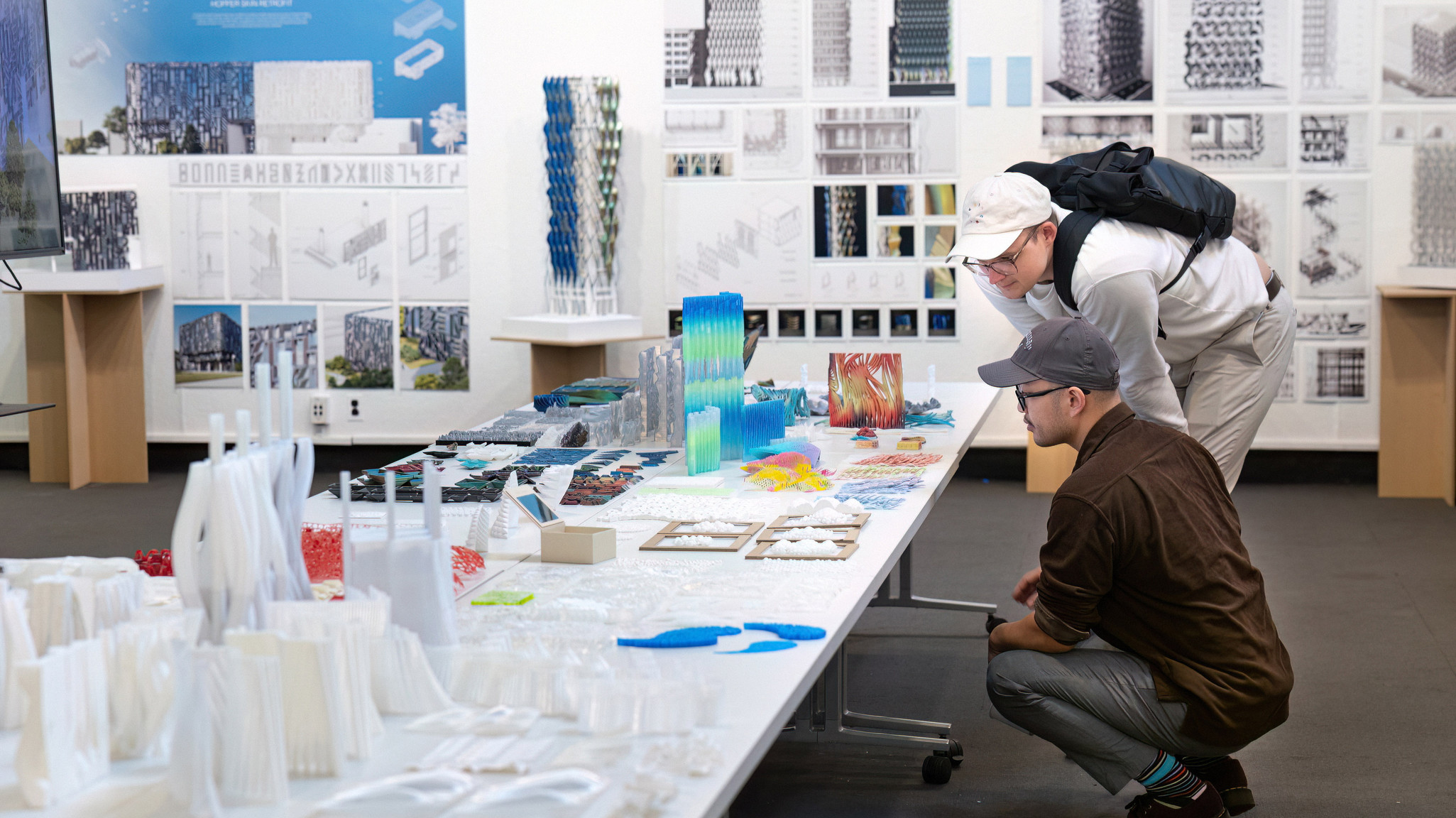
The studio’s proposals gesture toward both tangible, immediate solutions as well as promising research directions and new questions for architecture’s near future.
“The path towards a sustainable future requires a transition from the current linear, extractive, toxic construction practices, towards circular, bio-based, renewable materials and methods,” Koerner says. “We have this current opportunity to really think these questions through, and shape not just new buildings but new systems and approaches to building, to materials, to construction, and to performance.”
Research Centers
One of the avenues through which UCLA AUD accelerates research is its Research Centers.
AUD currently has two: cityLAB-UCLA co-founded by Dana Cuff and Roger Sherman, and directed by Dana Cuff, and xLAB founded and directed by Hitoshi Abe. Depending on grant funding secured each year by individual faculty members, students have the opportunity to apply for student researcher positions to support these creative and scholarly efforts.
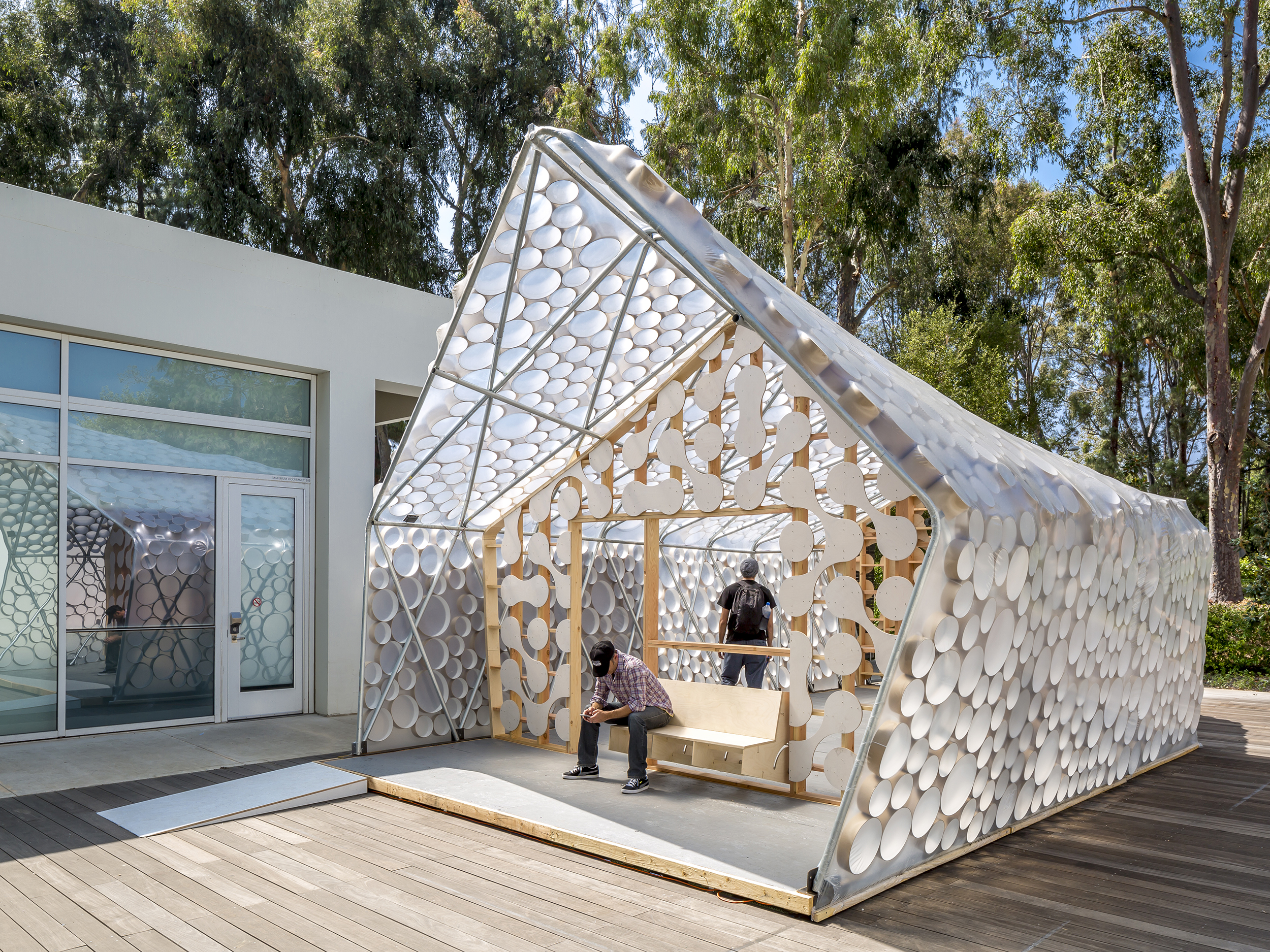
cityLAB-UCLA
cityLAB-UCLA leverages architecture, planning, and design, to address the most critical urban issues facing our cities today. cityLAB recently capped a 10-year effort to double the density of Los Angeles through the design of backyard homes. By co-authoring Accessory Dwelling Unit legislation (AB 229/SB 1069), we doubled the density of California, creating thousands of small residential jobs for architects and builders. In 2019, cityLAB followed up with a study about technology’s role in meeting the growing demand for backyard homes, and creative new approaches to ADU design-finance-build.
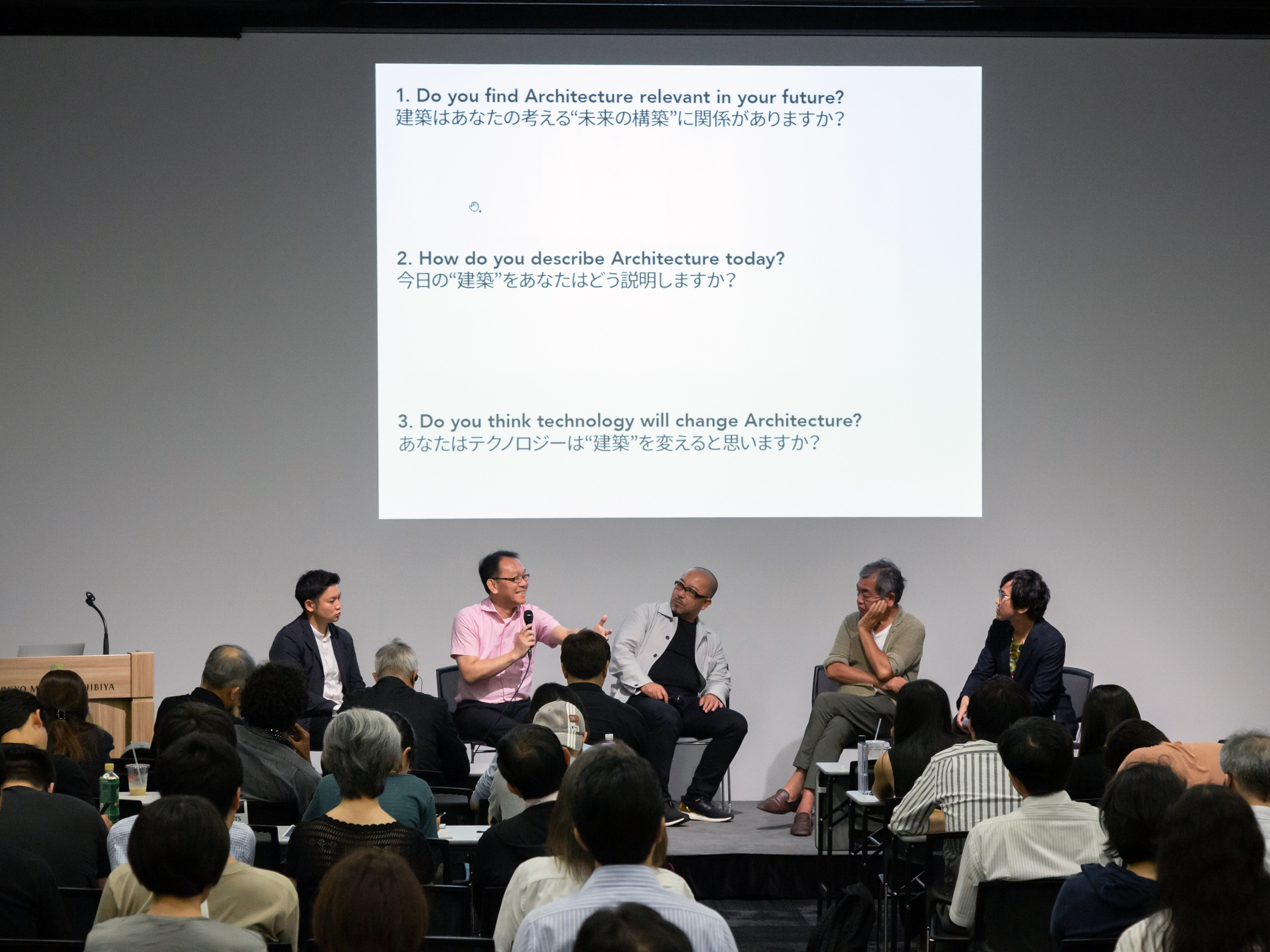
xLAB
xLAB is an international think tank initiative that examines architecture’s elastic boundaries and considers new possibilities through interdisciplinary collaboration in the study of the future built environment. xLAB encourages partnerships with a range of industries-including business, technology and science-creating a vast network of possibilities that expands architecture’s role and potential to serve as an active platform in which to “Research, Test, Share” ideas between fields, people, and places.
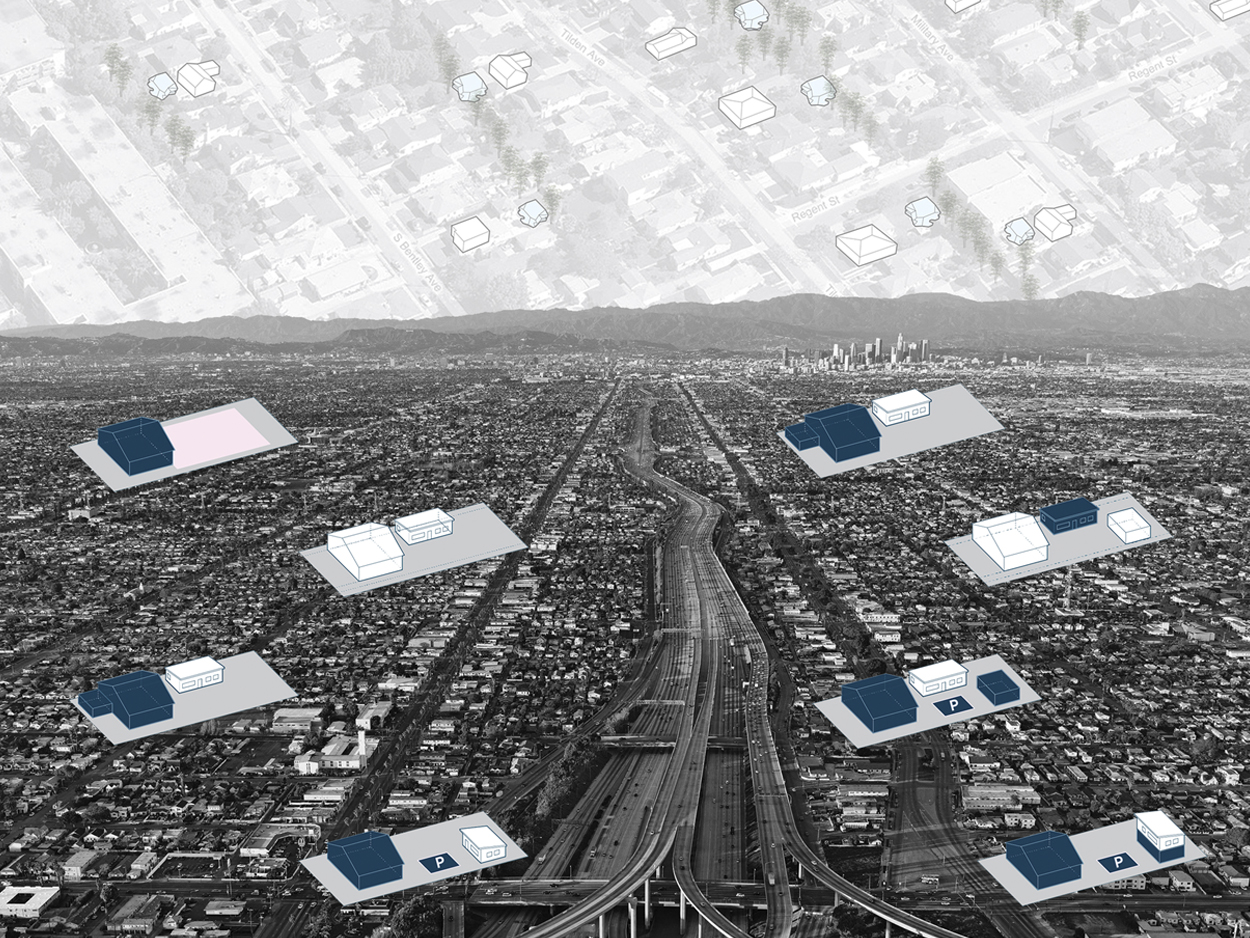
Urban Humanities Institute
The UCLA Urban Humanities Initiative (UHI) is a cross-disciplinary teaching and research initiative funded by the Andrew W. Mellon Foundation, based within cityLAB-UCLA. UHI integrates the interpretive, historical approaches of the humanities with the material, projective practices of design, to document, elucidate, and transform the cultural object we call the city. Architecture, urban studies, and humanities students are the heart of the program, and over 150 students have completed the year-long Graduate Certificate in Urban Humanities.